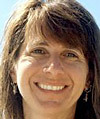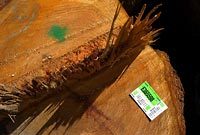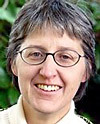What's good for state's forests is certifiably good for everyone

The Washington Department of Natural Resources took an important step forward in announcing its intent to seek Forest Stewardship Council (FSC) certification for 141,000 acres of state forests in the Puget Sound region.
FSC is the global standard-setter for responsible forest management. FSC provides a seal of approval for wood products that come from forests where fish and wildlife are protected and worker and community rights are respected.
The department's decision was spurred on by the efforts of several regional conservation organizations and by rapidly developing markets for wood products that are harvested and manufactured with the environment in mind.
While it's important to acknowledge and applaud the decision to move forward, it's also important to consider it in the larger context of logging in the state and region.
There are now over 50 FSC-certified businesses in Washington state alone, including forest landowners, mills and lumber retailers. On a global scale, the amount of FSC-certified forestlands has grown quickly in recent years, from 118 million acres in 2004 to an incredible 215 million acres today.
These changes — both locally and globally — signal a significant shift in the world of logging and how consumers' values can change the world. As the public begins to understand that not all two-by-fours are alike, the demand for FSC-certified wood products grows.
However, much of the timber industry in Washington state has not kept pace with this trend toward FSC certification. This failure makes the industry vulnerable to being left behind in global wood markets and leaves our local forests open to harmful logging practices.
In order to ensure that the precious forests and natural heritage of Washington state are protected, that logging jobs are maintained throughout our communities, and that we're not left behind wondering why so much sustainable lumber is coming from other regions or nations, it is incumbent upon all of us to choose FSC certification.
We should be choosing FSC certification for public and private lands, FSC wood for building projects and renovations, and FSC paper for our offices and homes.
We hope that the Department of Natural Resources' decision to certify a small part of our state forests will be just the beginning of a larger process to FSC-certify the rest of the 2 million acres of state-managed forests. What's good for the health of the forests in Puget Sound region should be good for the rest of the state. DNR should choose responsible management for all our forests.
Much of the private timber industry in Washington has resisted and criticized FSC certification and gone about business as usual. With nearly 8 million acres of private forestlands, Washington's businesses have a real opportunity to set the standard nationally and to carve out an important and ever-expanding niche in the marketplace.
If FSC certification is attainable for large companies in Idaho, Minnesota, California and many other states, then it's certainly attainable for businesses in Washington.
Consumers and the general public also have an important role to play in this movement. Every time we Washingtonians buy a stack of two-by-fours, a ream of paper or new flooring for our homes, we have a choice. We can support the logging practices of yesterday that cause erosion, threaten wildlife and sacrifice the few remaining stands of ancient forests in our state. Or, we can choose the logging practices of tomorrow by purchasing wood and paper products that guarantee logging is done in a responsible manner that protects workers, communities, streams and rivers and our state's natural heritage.
FSC is still the only credible system to provide these important safeguards.
Our state's Department of Natural Resources took a good first step — but the people of Washington cannot declare victory until all 2.1 million areas of state forests are FSC certified.
Marina Skumanich is president of the Seattle Audubon Society, www.seattleaudubon.org; Joan Crooks is executive director of the Washington Environmental Council, www.wecprotects.org

